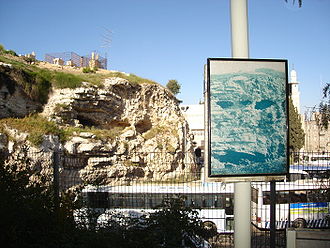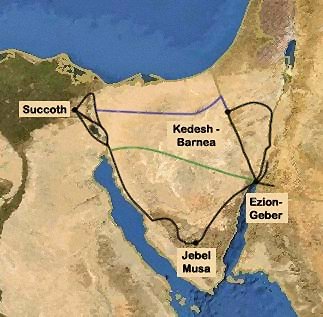
Unleavened Bread
COGwriter
Last night began the seven day feast of unleavened bread. Many have never even heard of this biblical period. And most of those who have consider it to be a Jewish practice.
Notice God’s instructions in the Hebrew scriptures:
6 And on the fifteenth day of the same month is the Feast of Unleavened Bread to the LORD; seven days you must eat unleavened bread (Leviticus 23:6).
Jesus, of course, kept it (Luke 2:42; John 4:45).
But did early Christians continue to observe this?
According to the Bible and the early available records, the answer is yes.
First, let’s start with the Apostle Paul’s writings in the Bible:
6 Your glorying is not good. Do you not know that a little leaven leavens the whole lump? 7 Therefore purge out the old leaven, that you may be a new lump, since you truly are unleavened. For indeed Christ, our Passover, was sacrificed for us. 8 Therefore let us keep the feast, not with old leaven, nor with the leaven of malice and wickedness, but with the unleavened bread of sincerity and truth (1 Corinthians 5:6-8).
Notice that he is telling Christians to keep the feast. Now while some may try to argue that he meant something else, the plain truth is that the records of history do show that Christians continued to keep this Feast of Unleavened Bread.
An old document that was probably altered in the 4th century, titled The Life of Polycarp, specifically mentions the Passover, the Days of Unleavened Bread, and Pentecost. And it records that the Apostle Paul said that they should be kept:
In the days of unleavened bread Paul, coming down from Galatia, arrived in Asia, considering the repose among the faithful in Smyrna to be a great refreshment in Christ Jesus after his severe toil, and intending afterwards to depart to Jerusalem. So in Smyrna he went to visit Strataeas, who had been his hearer in Pamphylia, being a son of Eunice the daughter of Lois. These are they of whom he makes mention when writing to Timothy, saying; Of the unfeigned faith that is in thee, which dwelt first in thy grandmother Lois and in thy mother Eunice; whence we find that Strataeas was a brother of Timothy. Paul then, entering his house and gathering together the faithful there, speaks to them concerning the Passover and the Pentecost, reminding them of the New Covenant of the offering of bread and the cup; how that they ought most assuredly to celebrate it during the days of unleavened bread, but to hold fast the new mystery of the Passion and Resurrection. For here the Apostle plainly teaches that we ought neither to keep it outside the season of unleavened bread, as the heretics do, especially the Phrygians…but named the days of unleavened bread, the Passover, and the Pentecost, thus ratifying the Gospel (Pionius. Life of Polycarp, Chapter 2. Translated by J. B. Lightfoot, The Apostolic Fathers, vol. 3.2, 1889, pp.488-506).
Notice that Paul is shown to have taught Gentiles to keep the biblical Holy Days. Which is also what he did in 1 Corinthians 5:6-8.
Interestingly, Polycarp himself also kept the biblical Holy Days and he even told Bishop Anicetus of Rome that Rome needed to observe Passover the same day as the Jews and not on a Sunday (this is documented in more detail in the article Polycarp of Smyrna: Heretic Fighter).
Polycarp is considered to be a saint by Catholics, Orthodox, many Protestants, and those in the Living Church of God. Yet of those groups, only the Living Church of God continues his practices as far as the Holy Days are concerned.
Notice what the Catholic writer Eusebius recorded that Polycrates of Ephesus, around 195 A.D. wrote the following to the Roman Bishop Victor who, as the previous writing showed, wanted all who professed Christ to change Passover from the 14th of Nisan to Sunday:
We observe the exact day; neither adding, nor taking away. For in Asia also great lights have fallen asleep, which shall rise again on the day of the Lord’s coming, when he shall come with glory from heaven, and shall seek out all the saints. Among these are Philip, one of the twelve apostles, who fell asleep in Hierapolis; and his two aged virgin daughters, and another daughter, who lived in the Holy Spirit and now rests at Ephesus; and, moreover, John, who was both a witness and a teacher, who reclined upon the bosom of the Lord, and, being a priest, wore the sacerdotal plate. He fell asleep at Ephesus. And Polycarp in Smyrna, who was a bishop and martyr; and Thraseas, bishop and martyr from Eumenia, who fell asleep in Smyrna. Why need I mention the bishop and martyr Sagaris who fell asleep in Laodicea, or the blessed Papirius, or Melito, the Eunuch who lived altogether in the Holy Spirit, and who lies in Sardis, awaiting the episcopate from heaven, when he shall rise from the dead? All these observed the fourteenth day of the passover according to the Gospel, deviating in no respect, but following the rule of faith. And I also, Polycrates, the least of you all, do according to the tradition of my relatives, some of whom I have closely followed. For seven of my relatives were bishops; and I am the eighth. And my relatives always observed the day when the people put away the leaven. I, therefore, brethren, who have lived sixty-five years in the Lord, and have met with the brethren throughout the world, and have gone through every Holy Scripture, am not affrighted by terrifying words. For those greater than I have said ‘ We ought to obey God rather than man’ (Eusebius. Church History, Book V, Chapter 24. Translated by Arthur Cushman McGiffert. Excerpted from Nicene and Post-Nicene Fathers, Series Two, Volume 1. Edited by Philip Schaff and Henry Wace. American Edition, 1890. Online Edition Copyright © 2004 by K. Knight).
Notice that Polycrates said that he and the other early church leaders (like the Apostles Philip and John, and their successors like Polycarp, Thraseas, Eumenia, Sagaris, Papirius, Melito) would not deviate from the Bible, and that they knew the Bible taught them to keep the Passover on the correct date, and not on a Sunday. Also notice that they always observed the day when the people put away the leaven. Polycrates also reminded the Roman bishop that true followers of Christ “obey God rather than men”.
Notice what a respected Protestant scholar reported about the second century:
The most important in this festival was the passover day, the 14th of Nisan…In it they ate unleavened bread, probably like the Jews, eight days through…there is no trace of a yearly festival of the resurrection among them…the Christians of Asia Minor appealed in favor of their passover solemnity on the 14th Nisan to John (Gieseler, Johann Karl Ludwig. A Text-book of Church History. Translated by Samuel Davidson, John Winstanley Hull, Mary A. Robinson. Harper & brothers, 1857, Original from the University of Michigan, Digitized Feb 17, 2006, p. 166).
So, like the Apostle John (the last of the original apostles to die), the early faithful Christians observed Passover and the Days of Unleavened Bread.
Adventist researcher Daniel Liechty reported Sabbath-keepers in Transylvania in the 1500s and later kept the biblical Holy Days (such as the Feast of Trumpets called Day of Remembrance below) (and those are days his church does not observe):
The Sabbatarians viewed themselves as converted Gentiles.. They held to the biblical holidays. Passover they celebrated with unleavened bread…The first and last seventh day of Passover were full holidays…There is no mention of circumcision, so it is unlikely that they practiced circumcision (Liechty D. Sabbatarianism in the Sixteenth Century. Andrews University Press, Berrien Springs (MI), 1993, pp. 61-62).
Notice that in the 1600s, those who kept the days of unleavened bread were persecuted for their beliefs:
And finally, the tragic “Accord of Deés” or Complanatio Deesiana in July 1638 definitely disjoined Sabbatarians from Unitarians. Unitarians were ordered to worship Jesus, baptize in the name of the Father, Son and the Holy Spirit, and to allow their publications censured–a coerced “complanatio.” The “Judaizers” and those who rejected and cursed Jesus, however, were excluded even from the new amnesty. Sabbatarians were easy target of the new discriminatory law: they observed the Sabbath, therefore they farmed on Sundays, abstained from eating pork and blood, celebrated the Passover with unleavened bread, and refused baptism of their children–the very sign of their expected conversion” (Gellérd, Judit. Spiritual Jews of Szekler Jerusalem A Four-Centuries History of Transylvanian Szekler (Székely) Sabbatarianism. In Literature of Memory VI: Hope and Despair STH TS 870, Fall 2000 Professor Elie Wiesel. http://www.unitarius.hu/cffr/papers/sabbat.htm–12/14/02).
Note that the “Judaizers” are separate from “those who rejected and cursed Jesus”. In this region, there were both true Christians (the “Judaizers” who celebrated the Passover with unleavened bread, etc.) and those who rejected Christ as Messiah (hence the Judaizers were not actually unitarian).
So, we have both biblical and historical evidence that Christ and His true followers observed the days of unleavened bread.
Shouldn’t you?
Some articles of possibly related interest may include:
Should Christians Keep the Days of Unleavened Bread? Do they have any use or meaning now? What is leaven? This article supplies some biblical answers.
UCG and Its Unleavened Bread Study Paper What does the Bible say about eating unleavened bread for seven days? What has UCG officially said about it?
Is There “An Annual Worship Calendar” In the Bible? This paper provides a biblical and historical critique of several articles, including one by WCG which states that this should be a local decision. What do the Holy Days mean? Also you can click here for the calendar of Holy Days.
The History of Early Christianity Are you aware that what most people believe is not what truly happened to the true Christian church? Do you know where the early church was based? Do you know what were the doctrines of the early church? Is your faith really based upon the truth or compromise?










